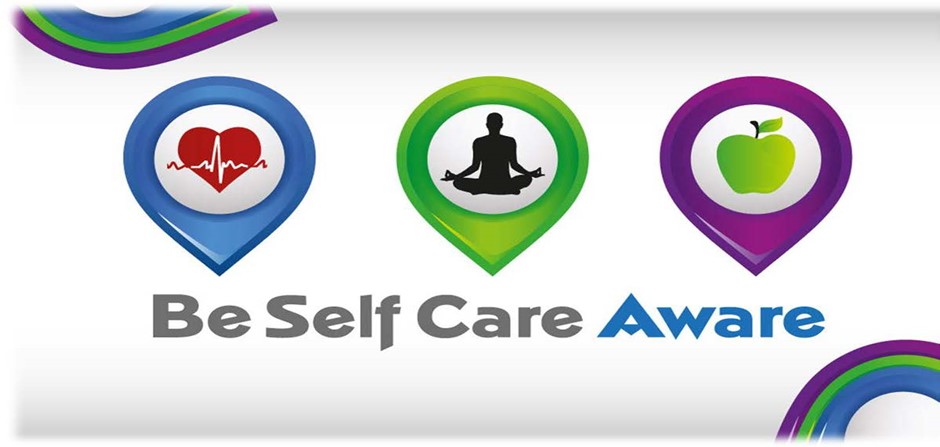Hello fellow colleagues, co-workers and friends welcome to the third in our series of weekly well-being guides designed to help support you (and offer some tips) as we all continue to navigate the ongoing waves of the Covid-19 virus together. In week one we offered tips on how to initially adjust, and concentrated on our physical well-being, week two came from more of a psychological viewpoint and this week we look at emotional well-being. Isolating from friends, family, co-workers and even those people that we couldn’t even name that played a regular part of our daily or weekly routines can take a toll on us. I for one find myself thinking about the people that waited at the same bus stop as me each morning, essentially strangers, that greeted me almost every morning with a gentle smile and a head nod. I find myself wonder about how they are and whether they are okay, will I ever see any of them again and why didn’t I take the chance to at least find out their names.
In times of uncertainty we can start to question the certainty of things that we have always felt were dependable and never thought about as ending before. For me it has been in the form of regret as mentioned, for some it will be fear of death or losing a loved one. Others will feel worry about life after Covid, finances, will anything be the same ever again? At the end of each guide we use a picture of a ship, this is not just to end with a pretty picture but is an analogy for life, and particularly the new waters we are all navigating together now. As therapists we often see the correlation between uncertainty and instability, and emotional distress, the more chaotic and stormy life feels the more extreme our emotions can feel as we ride those waves in our little ships.
As we mentioned last week these are just a few subjects, we could have gone on endlessly writing and debating emotional well-being, as this subject is often held up in much professional debate between therapists. Most of the therapeutic community prides itself on its ability to accept others, their beliefs and points of view, however certain subjects can be contentious. If you ever find yourself in a room full of therapists of differing approaches to therapy, ask the question “what causes emotional distress” and then run like the wind as you see a room full of acceptance and understanding turn into something that reminisces a scene for the Hunger games. So, if you find yourselves in need of more detail on subjects such anxiety, depression, or anger, please let us know and we will brave those debates for you and come up with something we hope will be helpful.

EMOTIONAL WELL-BEING.
- Acceptance: Feeling anxious and/or down does not cause anxiety and depression, but how much attention and importance we place on these feelings can cause distress and negative states of mind. Normalising our emotional states of mind is an important skill in life, more so when faced with emotional stimulating situations such as global and national uncertainty. I for one actually speak the words out loud “I’m feeling anxious, why wouldn’t I these are anxious times.” This has the effect of putting my anxious emotions into perspective allowing me to acknowledge them, feel them, accept them and move on (a little caveat here is that there is no timeframe to the moving on bit, we know that difficult and intense emotions shift eventually when given a space just to be). Emotions are not good or bad they are just signals from the brain communicating the world around us. The world around us is currently uncertain, restricting and distressing, so it’s important we normalise the inevitable feelings we are going to have, hear them and react accordingly. Emotional resilience is something that is built up over time, i.e. experiencing the same emotions in a similar situation over and over again, allowing us to build a strategy to deal with this and affording us some degree of security in future situations. For example, the first time I got my heart broken I am happy to admit I was a blubbering mess. I thought the world was ending, my life was over, that I would never get over it and spent an embarrassing amount of time in my bedroom listening to Celine Dion. Over time I inevitably got my heart broken again and although it still hurt, and I went through a similar grieving process I also had a newfound security that the pain wouldn’t last for ever. As people keep mentioning these are unprecedented times with no precursor, so accepting that our emotions are going to feel a bit all over the place, raw and sensitive at the moment can be helpful. Acceptance of our emotional state of mind can be incredibly freeing, so be kind and understanding with yourselves at this time. If your schedule is to get up and get dressed by 8.30 am and that day you feel down and need to sit on the sofa in your PJ’s until 11am then that’s okay, why wouldn’t you have days like that, this is a difficult time.
- Avoid avoidance: Avoiding and supressing thoughts, feelings and negativity can seem like the perfect strategy to staying happy and positive in this difficult time. However, I ask you this “how do you know what to avoid and supress?” These thinking strategies end up having the opposite effect than we intended and I can prove this with a simple experiment: I would like you to take a moment, empty your mind and try as hard as you can to avoid and supress any thoughts of a purple rabbit……………………………………………… “I know what you’re thinking!” = A PURPLE RABBIT. In order to avoid and supress our thoughts and feelings we have to first monitor constantly for them which in turn causes more negative thinking than if we had allowed the brain to do what it is designed to do, process thoughts and emotions. This in turn proves something very important to us, it shows our brains that we can cope, that thoughts and feeling are not going to kill us, or cause us irreparable damage. As mentioned earlier this will allow us to build up vital resilience so we can create strategies to overcome or manage any distress. We often like to use the analogy of a wave, if you surf the wave it will come down and you will get better at surfing next time.
- Avoid regulating emotions artificially: I’m not saying for one minute that there is anything wrong with having a drink of alcohol or coffee, or taking prescription medication (as advised by a medical professional). However, it is important in these difficult times to keep a close eye on not only how much we are consuming, but also our reasons for why we are using these substances. Social and work expectations and commitments help us regulate our consumption and use of mind-altering substances, such as alcohol, prescription medication, and yes even coffee. With these expectations and commitments being out of synch at the moment it is easy for our consumption to increase without us realising. We can find ourselves relying on substances to regulate our emotions and thoughts. For example, it can feel like an extra couple of G&Ts or beers, ‘help’ stop us thinking so much, relieve stress and stop any worry. However, using external means to regulate our thoughts and feelings actually hinder us from building resilience to them and developing our own healthy strategies. Be aware that the beneficial effects of using any mind-altering substance is not free they come at a cost of emotional psychological and physiological balance. The human body is constantly trying to keep itself on an even keel working at attaining an optimal balanced level. When we add substances to our body it fights back by trying to move the body back into balance, this is what causes what is commonly known as a hangover and/or comedown. All, and I can’t stress this enough, ALL mind-altering substances, coffee, alcohol, illegal drugs, or even being tempted to increase the use of prescription medication, have the opposite effect on the body once they leave the system to the initial affect. If they make you feel euphoric and happy you will then feel depressed, if you feel calm and content you will then feel anxious, if they give you added energy you will then feel sluggish, and if you stop having negative thoughts you will then be bombarded by negative intrusions and over-thinking.
- Self-kindness: As I mentioned earlier and in our previous guides, it is important to be good to yourself, be understanding and accepting if you are struggling a bit, or if you can’t do everything you can do normally and feel down or low. In the same sense it is also important to celebrate the successes, acknowledge when we’ve done well and Identify difficult situations that we have overcome (even if these consist of small tasks). Positivity and focusing on your well-being are like throwing a stone into a pond, it only takes one small thing to start a ripple process flowing through other aspects of our lives. Don’t forget to use self-praise and words of affirmation to lift your spirits and activate that reward pathway in the brain that will help to make you feel better. Just saying nice things is not enough, go into detail and give examples. I for one will say to myself out loud later “You’ve worked really hard today, despite other work commitments and family distractions, by creating these tips and suggestions to help others.” Therefore, I am stimulating the reward pathways in my brain and creating positivity and the motivation to keep going. However, please bear in mind what we mentioned previously under the headings of “Acceptance” and “Avoid avoidance”, be mindful not to use this as a way of disavowing or avoiding those more difficult feelings. Please accept also, that sometimes practicing self-kindness might be hard as we just feel overwhelmed, or swamped at that time. Do not beat yourself up and cause more negative feelings!
Well you have succeeded in reaching the end of yet another weekly guide series! Thank you for taking time to read our thoughts and tips – we hope you will have found some encouragement and normalisation of common themes to do with our emotional management in what we have put together. Our topic next week will be spiritual well-being; this guide will not be about religion, but will be our attempt to address the deeper appreciation, connection and meaningful relationships we all can have with a higher level force or energy, and/or with the world around us, and of how concepts like hope, faith, and love are mutually holding, universal, and especially important in difficult times like these. On that ‘deep’ thought I will say ‘goodbye’ for now. I continue to wish you, your families, and your loved ones well as you all keep on navigating! I hope this week the sea has been less choppy and that you have manged to ride any waves.
Do take care of yourselves and stay safe
Helpful links:
- Every Mind Matters- https://www.nhs.uk/oneyou/every-mind-matters/coronavirus-covid-19-staying-at-home-tips/
- Mental Health UK- https://mentalhealth-uk.org/help-and-information/covid-19-and-your-mental-health/
- Suicide Prevention life line- https://suicidepreventionlifeline.org/current-events/supporting-your-emotional-well-being-during-the-covid-19-outbreak/
Royal College of Nursing- https://www.rcn.org.uk/get-help/member-support-services/counselling-service/covid-19-and-your-mental-wellbeing
Recent Blogs
-
January 11, 2022
Week 4: Tips for Coping with isolation and working from home.
-
January 11, 2022
Week 3: Tips for Coping with isolation and working from home.
-
January 11, 2022
Week 2: Tips for Coping with isolation and working from home.







